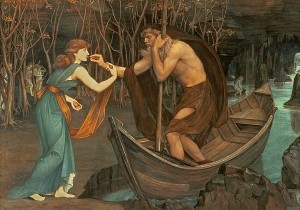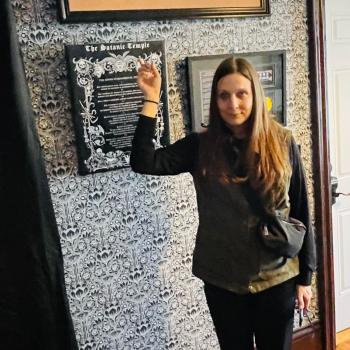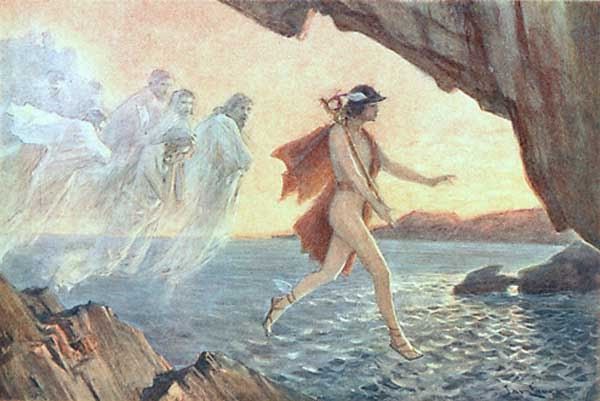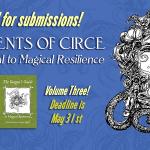Don’t speak ill of the dead.
It’s considered improper, even cruel, to criticize someone newly passed. Grieving relatives and friends want to hear the good. The bad and the ugly, we are to bury deeper than the corpse, keep locked tighter than the air-tight cemetery vaults our civilization favors.
But the truth is that all of us leave unfinished business. Many of us have harmed others. Some people are just hard to love.
Recently the man who was chairman of the SIUE journalism department when I attended died. He was a complicated man. A gifted poet, a graceful writer. Visionary enough to put together a program that required students to be proficient in writing, photography and design. Who encouraged cross-training in radio and television. Who demanded excellence, and left a legacy of journalists employed in highly regarded public relations firms, advertising and marketing companies, major market radio and television stations, and major daily newspapers. Some of whom have managed the transition into new media, some of whom have not.
And the Facebook accolades have rolled in. Yes, he did much good. Yes, he taught me writing and photography and design skills that served me well. That I still use.
And yet—I am not sure any of his students liked him. Maybe years later, we appreciated him. But like? No.
I remember one day in particular. Mr. W. was reviewing our advanced design projects. The projects from that class became department publications, useful for portfolios and for entry into national journalism contests. He had to approve each design, check the type and line rules and photo windows for perfect straightness.
He made comments and blue-pencil suggestions on B’s page. B was a good writer and creative designer who went on to a high-paying corporate publications job.
T’s page was next. T. was a gifted writer, but had produced a page design which violated almost all the principles Mr. W. taught. And Mr. W. was merciless. He ripped up the columns of type, each one representing hours of labor. He stripped out the taped lines. He pointed out the page layout was the wrong size, and ripped away more lines of copy. He ended by throwing the whole thing in the trash, while screaming at T. about the wretched design he had produced.
I was horrified, and so very glad my page wasn’t due for critique.
T. later left the program.
It is no exaggeration to say that many of Mr. W’s students were afraid of him. Maybe most.
Why, then, did we continue to enroll in his classes? Why did the program do so well in national contests, outranking programs that were far larger and more established? Were we all masochists?
No. Mr. W. was the challenger at the crossroads. He was the gatekeeper of the sacred land. He saw journalism as an almost religious calling, and most of us agreed. His program was very much an initiatory ordeal.
One of my own spiritual teachers said that she always thought the initiators of myth were judged too harshly, and turned to villains by a world that did not understand or value the transformational nature of ordeal.

Aphrodite sends Psyche from the heavens to the underworld to prove herself worthy of elevation to Goddess-hood and reunion with Eros. Gwion Bach is stolen from his home, stirs Cerridwen’s cauldron for a year and a day, then is consumed and birthed by the Goddess before he shines forth as Taliesin. Jennet grabs Tam Lin from his charger pale, holds him as the Fey transform him to snake, lion, bear, and hot lead, then wins her lover as the Faery Queen shouts curses.
Desire was the fuel—desire for love, for knowledge, for honor. Great risk won great reward. Aphrodite, Cerridwen and the Fey produced trials that would have broken lesser souls, but which tempered the steel in the characters of Psyche, of Gwion Bach, of Jennet and Tam Lin.
I’ve been in rituals that re-enacted those stories, using them as templates for rites of passage into leadership and maturity. I’ve studied with spiritual teachers who are demanding, who do not coddle weakness. Some of them have been criticized legitimately; others have been slandered.
I also have read about other teachers and leaders I would call abusers. There are people who want to belong to a coven or grove or circle so badly they will allow themselves to be placed in physical or psychological danger to enter into the magic circle of the elect. I don’t judge them for that. I know there are times in my life I have been lonely enough that I might have been an easy target for such an abuser if I had crossed paths with one. I was lucky, and did not.
As for my journalism teacher, Mr. W, I wonder how he would fare today. He got away with the harsh treatment of his students, I think, because the program had high enrollment and a high job placement rate. We were willing to put up with his abuse because he also passed along knowledge of great worth. And in a competitive job market, we wanted any edge we could get.
It also was a time in which students were less likely to take grievances to administrators. Many of my classmates were the first in their families to attend college. Standing up to an educational authority figure like the head of a department was outside their realm of experience. Or expectation. We worked hard, took our grades and our lumps, then moved on to the next class.
My own feelings about him remain mixed. As I said, I learned many valuable things from him and the program he put together. I won a national feature writing prize with a piece from my second entry-level course, as well as others after that. He treated me well in recognition of my talent and the awards I won. I was climbing the career ladder successfully until I jumped off to get married and move back to my home area, where a recession meant companies were laying off, not hiring. I can’t blame Mr. W. for my decisions.
But I also remember scenes of unpardonable cruelty towards students who didn’t measure up. Or whose talents were more specialized and not suited to the three-part program he designed. I do not think the good necessarily outweighs the bad. Perhaps it balances. The scale I hold in my mind’s eye keeps moving.















